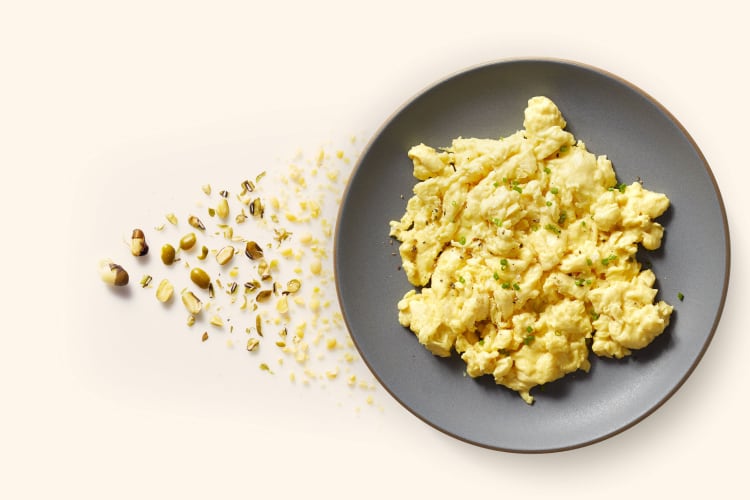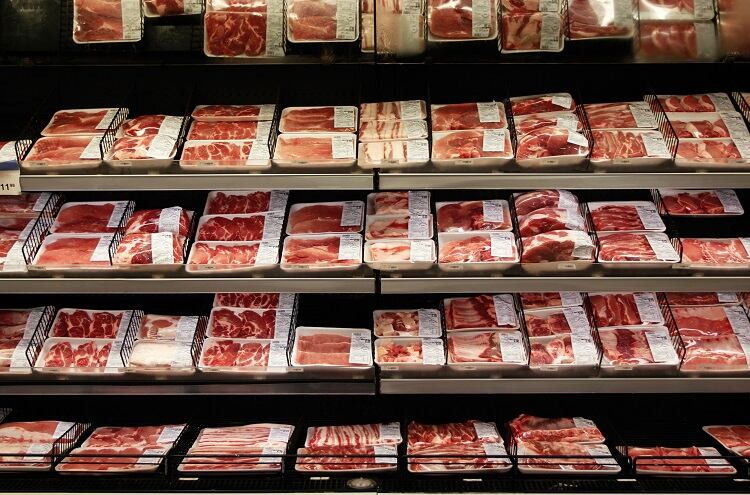EFSA published a new scientific opinion today (20 October) on Eat Just’s application to market an alternative protein derived from mung beans as a novel food. The opinion found protein powder extracted from seeds of the Vigna radiata – or mung bean – plant is ‘not nutritionally disadvantageous’ and is safe under the proposed conditions and use levels.
EFSA observed that mung beans are already widely consumed in Asia. In India, for instance, mung beans are used across a variety of applications in sweet and savoury items such as snacks, while in other parts of Asia they are used in cakes, noodles and soups. The Panel on Nutrition, Novel Foods and Food Allergens (NDA) also noted that, to a lesser extent, mung beans are also are eaten as fresh mung bean sprouts in Europe.
Mung bean protein is isolated from dry mung bean seeds in a sequence of processing steps which conclude with a drying process. The end ingredient is made up of ~85 % protein, 3-4% fat and 3-5.5% moisture.
EFSA said mung bean protein is structurally related to seed storage proteins in other legumes, such as soy, lupin and pea. It noted that the mung bean protein isolate could therefore potentially trigger allergic reactions in people who are sensitive to soybeans, peanuts, lupin and birch pollen.
The conclusion from EFSA’s NDA panel will serve as the basis for a final decision on the conditions of use and marketing, including labelling, to be taken by the European Commission and Member States.
A ‘growing number’ of applications for novel proteins
Eat Just’s mung bean protein is the first novel legume protein to be deemed safe under the EU's Novel Food regime.
EFSA said the approval is ‘among the first’ in a ‘growing number’ of applications the food safety organisation is receiving for sustainable protein alternatives.
Antonio Fernández, the scientific officer responsible for the opinion, explained that the regulator has seen a ‘steep rice’ in novel food applications, including for new plant-based protein sources.
Currently, EFSA has 43 Novel Food applications under suitability check, part of the EC validation process, and 99 under risk assessment. Plant-protein sources account for around 10% of novel food applications. Other examples of applications received and being considered include rapeseed protein, barley rice protein as well as algae and fungi varieties, the organisation revealed.
“Our risk assessment of mung bean protein is an important and necessary step in the novel food evaluation process. Through our risk assessments, we support policy makers in the EU in taking science-based decisions and ensuring the safety of consumers, while also making an important contribution to innovation in this sector,” Fernández commented.
JUST Egg set for launch in mid-2022
Responding to the news, US-based Eat Just said that the decision paves the way for an initial launch of JUST Egg in mid-2022, after the Commission concludes its review.
“Bringing JUST Egg to Europe, and to millions of consumers who are choosing a healthier, more sustainable approach to eating, will be one of the most important milestones for our company,” said Josh Tetrick, co-founder and CEO of Eat Just.
The company added it is also ‘actively engaging’ with the UK’s Food Standards Agency on a path to regulatory approval. The FSA took on the role filled by EFSA in the UK after the country left the European Union.
Eat Just highlighted the potential it sees in the European market for a plant-based egg replacer. Nielsen data shows European retail sales of plant-based foods reached €3.6 billion in 2020 – 28% higher than 2019 and 49% higher than 2018. A 2020 report by ProVeg International said stand-alone egg alternatives like JUST Egg represent a 'major market opportunity' due to their versatility, breadth of function and frequency of consumption.
The decision was welcomed by The Good Food Institute Europe, a not-for-profit group working to support the transition towards sustainable protein consumption.
Alice Ravenscroft, head of policy at the food sustainability NGO, said EFSA’s approval shows consumers that Just’s novel plant-based protein is safe as well as sustainable.
"This decision is another major step forward for the future of plant-based meat, eggs and dairy in Europe, and demonstrates that they meet the world-leading regulatory standards consumers rightly expect,” she commented. “With demand growing all the time, we look forward to seeing the JUST Egg joining the ever-growing range of sustainable options available on the continent's supermarket shelves.”
Eat JUST has been expanding globally, with recent launches in South Africa and South Korea. The company’s international markets also include Canada, Hong Kong, Singapore and China.




